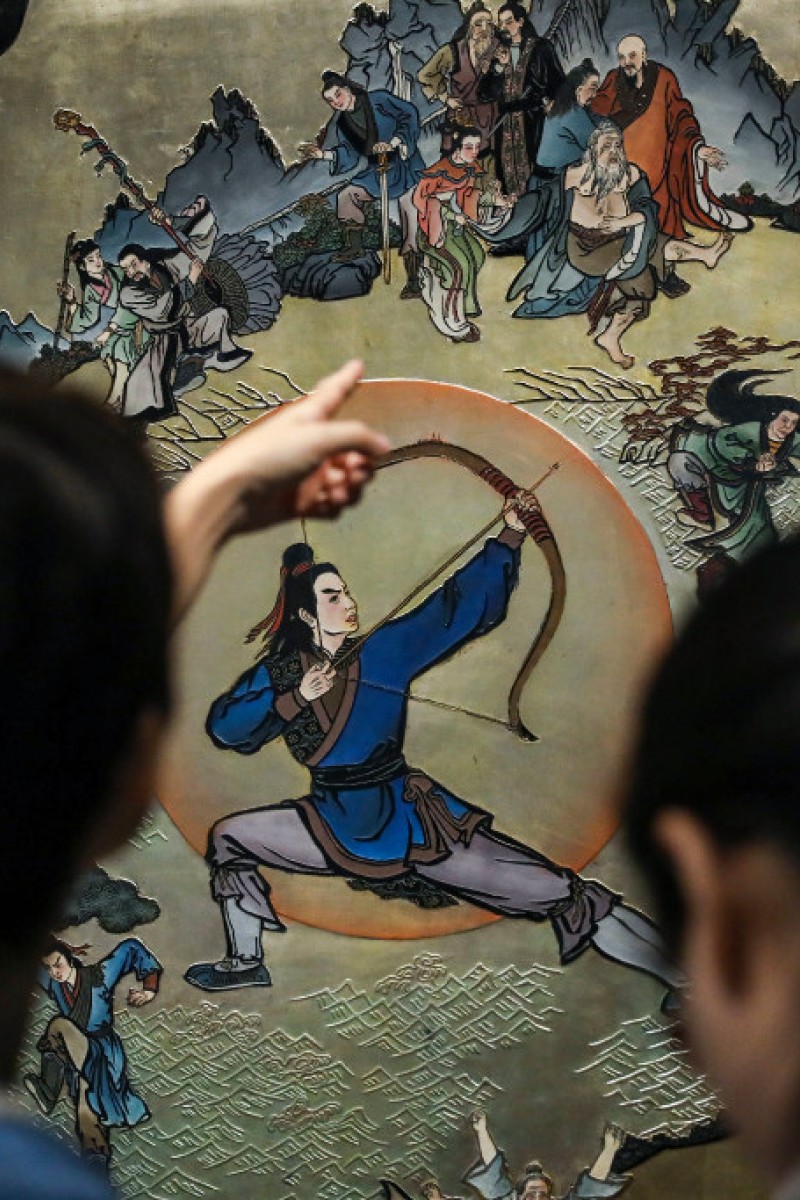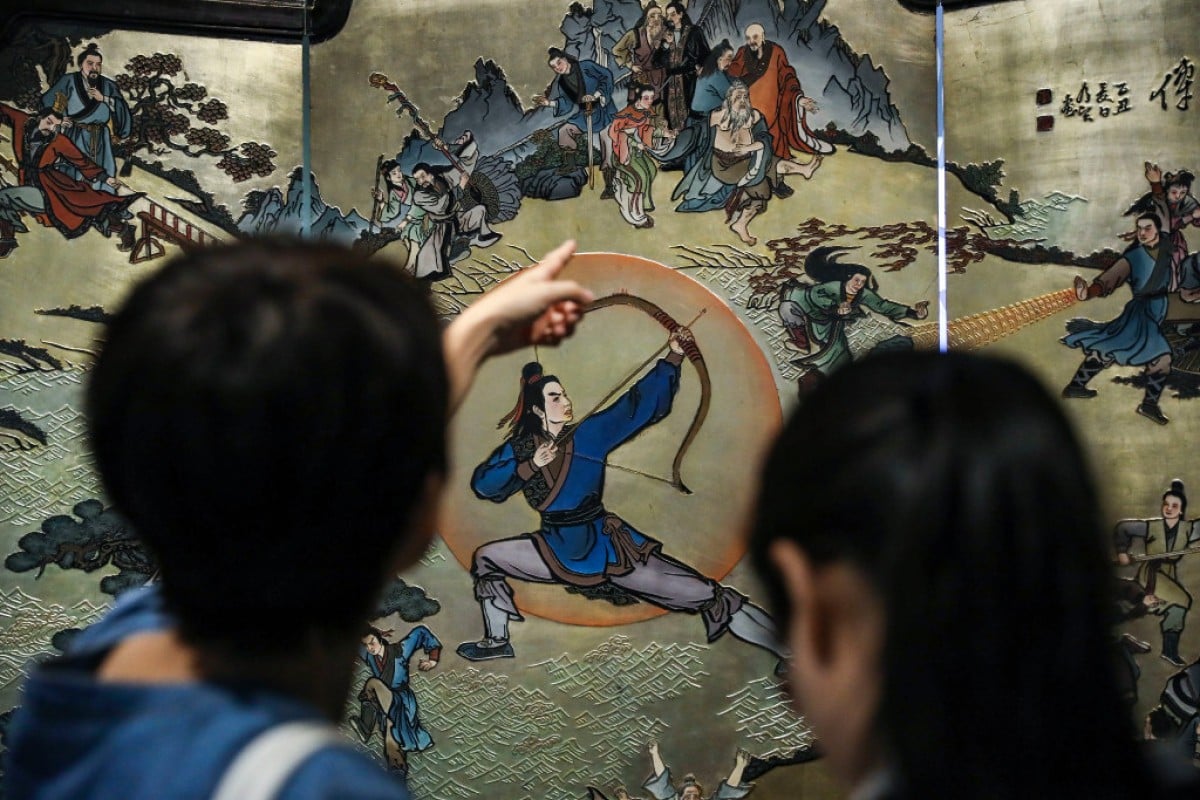
Legacy of Louis Cha ‘Jin Yong’ to live on through wuxia-inspired video games
A look at the works of this legendary writer that have been turned into television dramas, films, online comics and games over the decades

The late martial arts novelist Louis Cha Leung-yung is set to exert his influence over new generations of gamers captivated by the wuxia genre, many of whom were not even born when he wrote his last work in 1972.
“As long as it’s wuxia, people will feel reluctant to accept a game if it doesn’t include some of Jin Yong’s influence,” said Zheng Jie, 32, the developer behind new hit Chinese single-player personal computer game The Scroll of Taiwu. “His work will be adapted over and over.”
Cha’s 14 bestselling novels and one short story, which were written between 1955 and 1972 under his pen name Jin Yong, have already helped spawn numerous hits over the past two decades in China’s video games market, which is the world’s largest by revenue.
Dive into the world of Louis Cha ‘Jin Yong’ with The Legend of the Condor Heroes
Wuxia, which literally means martial heroes, is a genre that covers the adventures of chivalrous martial artists in ancient China. Cha’s classic wuxia novels, with deep roots in Chinese history, culture and beliefs, have been turned into television dramas, films, online comics and games over the decades.
At present, most of the Cha-inspired wuxia mobile games in the market are remakes of their PC versions published in the 2000s.
“Jin Yong is the starting point and high point of wuxia games,” said Jerry Lin, deputy investment head of Shanghai-based mobile games developer 37Games. “Just like TV shows and films have remakes, these games will be adapted constantly as well.”
One of the first major video game adaptations of Cha’s work was Heroes of Jin Yong, a single-player PC game created by Taiwan-based Heluo Studio in 1996. A gamer’s mission was to find Cha’s 14 novels scattered around the world, which led to interaction with some of the author’s famous characters, such as Yang Guo from The Return of the Condor Heroes.
Chinese literary giant Louis Cha dies at 94
In 2013, Chinese online games operator Changyou.com bought the rights to 10 Cha novels for adaptation into mobile games. Rival Perfect World, China’s No 3 games publisher, owns the video games rights to four of Cha’s novels.
Both companies have been steadfast about protecting their rights and have taken legal action against various game developers for unauthorised adaptations of Cha’s work.
In 2007, Changyou.com launched online role-playing game Dragon Oath, an adaptation of Cha’s Demi-Gods and Semi-Devils. It had the distinction of recording 80,0000 gamers simultaneously online in 2009, which rivalled the popularity of Blizzard Entertainment’s World of Warcraft in China. A mobile game version of Dragon Oath was released last year.
Increased interest in wuxia-inspired games remains a bright spot in China’s video games market, where Chinese regulators have halted the approval process for new games. This freeze on approvals is expected to extend to as late as February next year, pending the finalisation of a new licensing system, a government source told the South China Morning Post previously.
Beijing has sought to rein in the gaming industry this year, amid concerns over internet addiction, childhood myopia and unsuitable content.
Hong Kong manga artist Sam Tse reimagines Occupy Central as zombie apocalypse
Still, the recent success of The Scroll of Taiwu, which had a peak simultaneous player number of 61,000 last month, augurs well for the prospects of wuxia-inspired games in China and other markets around the world.
“I’ll play whatever game that is adapted from Jin Yong’s work,” said Zheng, The Scroll of Taiwu developer. “Sometimes, I don’t even care if it’s good or not, or how it’s played. I believe many people are just like that.”